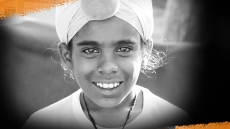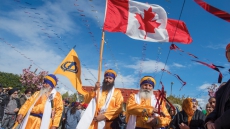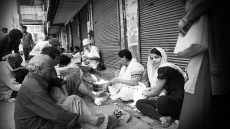When you are attending a Diwali celebration and reach for a samosa, remember that is like eating four teaspoons of sugar and about three teaspoons of fat.
Diwali is a festive celebration where families and friends get together and eat a variety of flavourful food such as pakoray, samosa, jalebi, gulab jamun, butter chicken, shahi paneer, dal makhani and even mango shakes. Eating in moderation and choosing healthier options will help you and your family to reduce your risk of disease such as diabetes and heart disease. South Asians are 2-3x more likely to get heart disease and diabetes.
So when you are attending a Diwiali celebration and reach for a samosa, remember that is like eating four teaspoons of sugar and about three teaspoons of fat. Pick up three pakoras and you are adding three more teaspoons of sugar and one more teaspoon of fat. Add something sweet and deep fried like a jalebi, and you are looking at six more teaspoons of sugar and almost three teaspoons of fat. Grab a cup of sweet chai made with homogenized milk, you are drinking three teaspoons of sugar and one teaspoon of fat. This appetizer meal contains a grand total of sixteen teaspoons of sugar and eight teaspoons of fat.

During Diwali consider these healthy tips to reduce your intake of sugar and fat:
- Balance your plate - half of your plate should be fruits and vegetables
- If you choose to eat foods high in fat and sugar remember to take smaller portions and eat in moderation
- Make water your choice of drink and cut back on sugary beverages
- Eat a healthy snack before you leave home like an apple
Eating foods high in unhealthy carbohydrates and unhealthy fats can take a toll on your body. Carbohydrates are used as fuel for our body, when eaten they are converted into energy. There are two types of carbohydrates: simple and complex. When simple carbohydrates are eaten in excess they can lead to diabetes, high cholesterol and weight gain. Simple carbohydrates are found in sweets, potatoes, roti, white pasta and noodles, pizza, white atta flour and rice. These foods spike blood sugar and digest quickly, leaving you hungry shortly after. Complex carbohydrates are found in whole grains, vegetables, dals, nuts and seeds. They are high in fibre so they digest slowly, thus helping control blood sugars, managing weight and may also lower cholesterol.

Fat is important for good health but remember not all fats are the same. Eat fats that are high in unsaturated fat to keep your heart healthy. Examples of unsaturated fats are canola, olive and mustard oil, nuts, and avocados. Avoid or limit fats that are high in saturated fats and trans fats to reduce your risk of heart disease. Examples of saturated fats include butter, cheese, coconut oil, ghee, buttermilk, and sour cream. Dishes that are high in saturated fat use cream such as in butter chicken, dal makhani and shahi paneer, and fried and processed food.
Making small changes to your diet can make a huge impact on your health. This information is not to deter you from enjoying the auspicious festivities, but a reminder to consume the foods we enjoy in moderation. Have a healthy and happy Diwali!
ABOUT THE AUTHOR
Ruby Bassi is a Registered Dietitian at South Asian Health Institute Fraser Health Authority (SAHI). The Institute is working to raise awareness and educate the community that self- management can be used as a preventative tool to living a healthy lifestyle.



